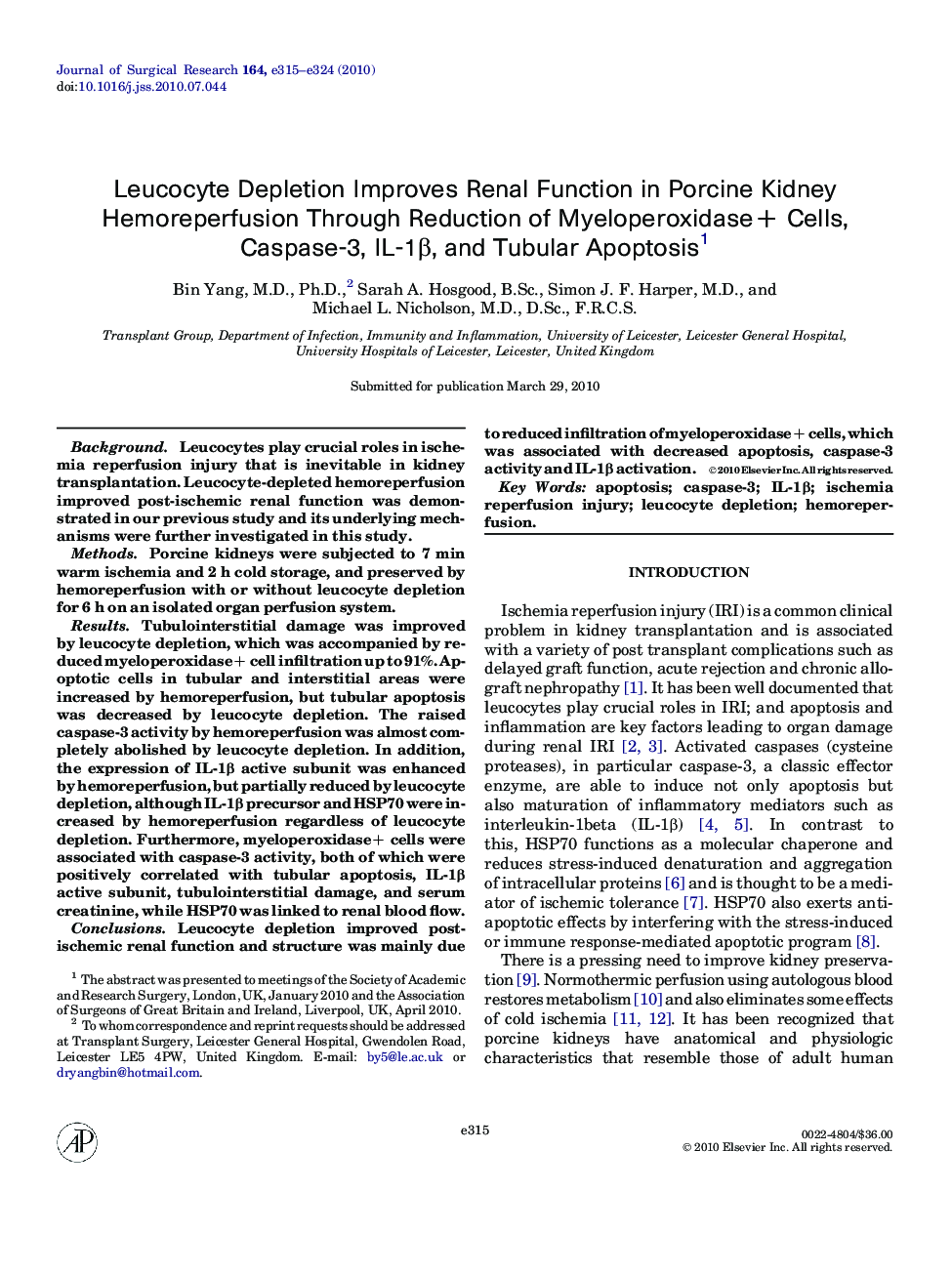| Article ID | Journal | Published Year | Pages | File Type |
|---|---|---|---|---|
| 4302755 | Journal of Surgical Research | 2010 | 10 Pages |
BackgroundLeucocytes play crucial roles in ischemia reperfusion injury that is inevitable in kidney transplantation. Leucocyte-depleted hemoreperfusion improved post-ischemic renal function was demonstrated in our previous study and its underlying mechanisms were further investigated in this study.MethodsPorcine kidneys were subjected to 7 min warm ischemia and 2 h cold storage, and preserved by hemoreperfusion with or without leucocyte depletion for 6 h on an isolated organ perfusion system.ResultsTubulointerstitial damage was improved by leucocyte depletion, which was accompanied by reduced myeloperoxidase+ cell infiltration up to 91%. Apoptotic cells in tubular and interstitial areas were increased by hemoreperfusion, but tubular apoptosis was decreased by leucocyte depletion. The raised caspase-3 activity by hemoreperfusion was almost completely abolished by leucocyte depletion. In addition, the expression of IL-1β active subunit was enhanced by hemoreperfusion, but partially reduced by leucocyte depletion, although IL-1β precursor and HSP70 were increased by hemoreperfusion regardless of leucocyte depletion. Furthermore, myeloperoxidase+ cells were associated with caspase-3 activity, both of which were positively correlated with tubular apoptosis, IL-1β active subunit, tubulointerstitial damage, and serum creatinine, while HSP70 was linked to renal blood flow.ConclusionsLeucocyte depletion improved post-ischemic renal function and structure was mainly due to reduced infiltration of myeloperoxidase+ cells, which was associated with decreased apoptosis, caspase-3 activity and IL-1β activation.
